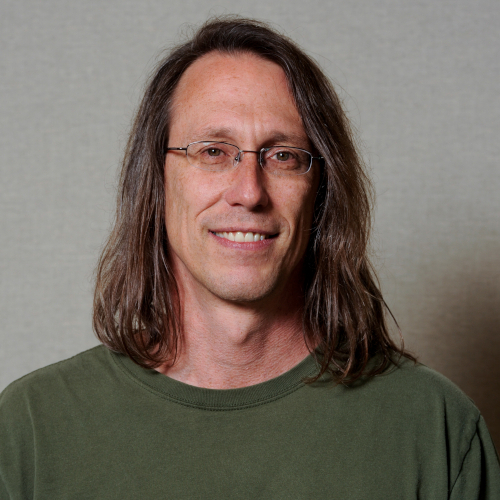Keith Weninger

Associate Department Head, Professor and University Faculty Scholar
Professor and University Faculty Scholar
Riddick Hall 144
919-513-3696 krwening@ncsu.edu WebsiteBio
Professor Weninger received his PhD in 1997 from the University of California at Los Angeles (UCLA). After postdoctoral appointments at UCLA (1997-2000) and Stanford University (2000-2004), he joined the faculty of North Carolina State University in 2004 as an assistant professor.
Area(s) of Expertise
Professor Weninger develops single molecule fluorescence methods and applies them to study biomolecular systems. In particular, his lab uses single molecule fluorescence resonance energy transfer (FRET) to characterize the conformational dynamics of multimeric protein complexes. Specific topics of interest include DNA mismatch repair and intrinsically disordered proteins.
Publications
- Evolving concepts of the protein universe , ISCIENCE (2025)
- Combining single-molecule and structural studies reveals protein and DNA conformations and assemblies that govern DNA mismatch repair , CURRENT OPINION IN STRUCTURAL BIOLOGY (2024)
- Reply to: On the statistical foundation of a recent single molecule FRET benchmark , NATURE COMMUNICATIONS (2024)
- Structural and Dynamical Properties of Nucleic Acid Hairpins Implicated in Trinucleotide Repeat Expansion Diseases , BIOMOLECULES (2024)
- A nanophotonic interferometer , NANOTECHNOLOGY (2023)
- Ex vivo analysis of ultraviolet radiation transmission through ocular media and retina in select species , Experimental Eye Research (2023)
- Frustration Between Preferred States of Complementary Trinucleotide Repeat DNA Hairpins Anticorrelates with Expansion Disease Propensity , JOURNAL OF MOLECULAR BIOLOGY (2023)
- Illuminating Intrinsically Disordered Proteins with Integrative Structural Biology , BIOMOLECULES (2023)
- A Nanophotonic Interferometer for small particle detection , INTERFEROMETRY XXI (2022)
- A blind benchmark of analysis tools to infer kinetic rate constants from single-molecule FRET trajectories , NATURE COMMUNICATIONS (2022)
Groups
Honors and Awards
- He received the Career Award at the Scientific Interface for his work in biophysics from the Burroughs Wellcome Fund.